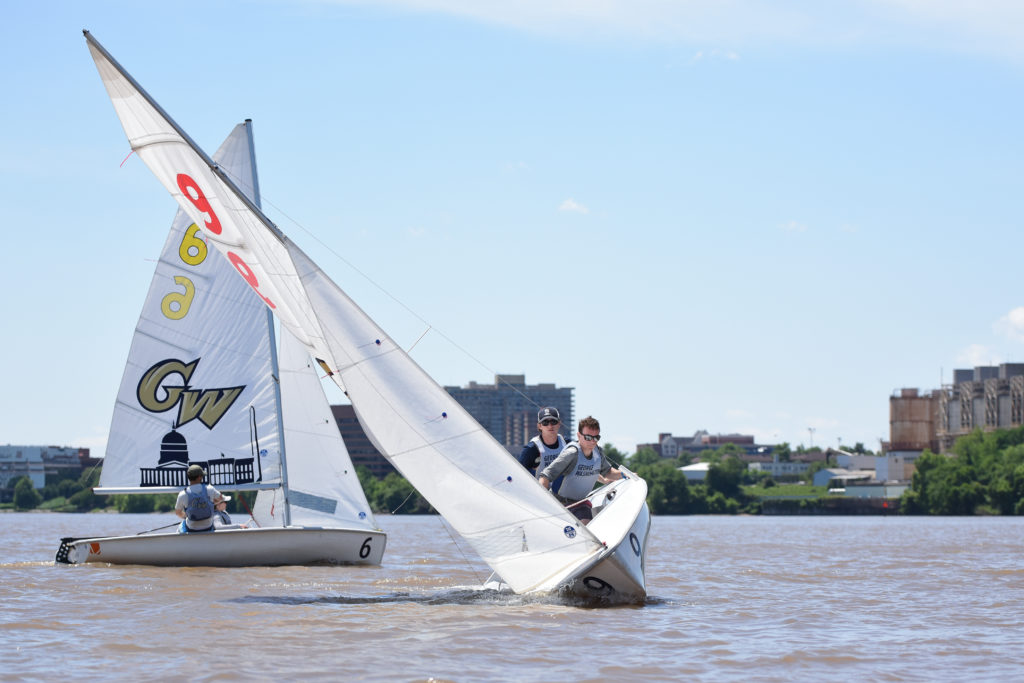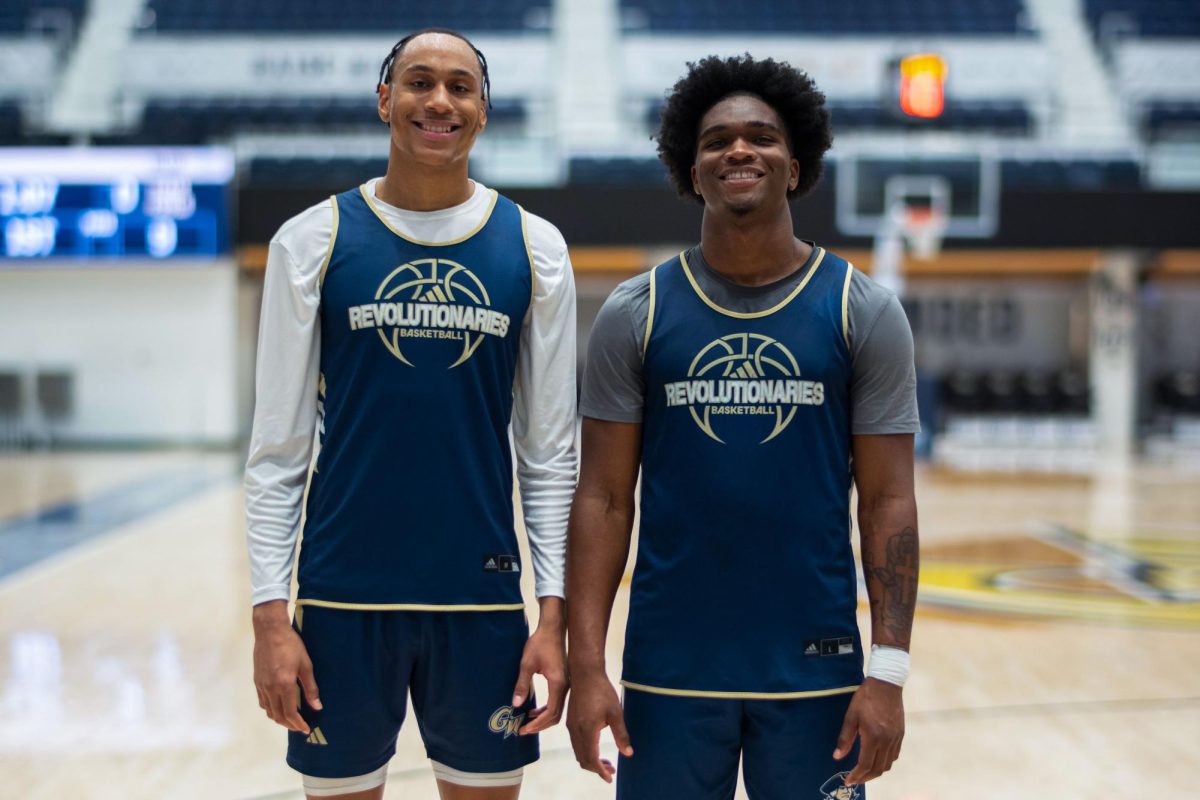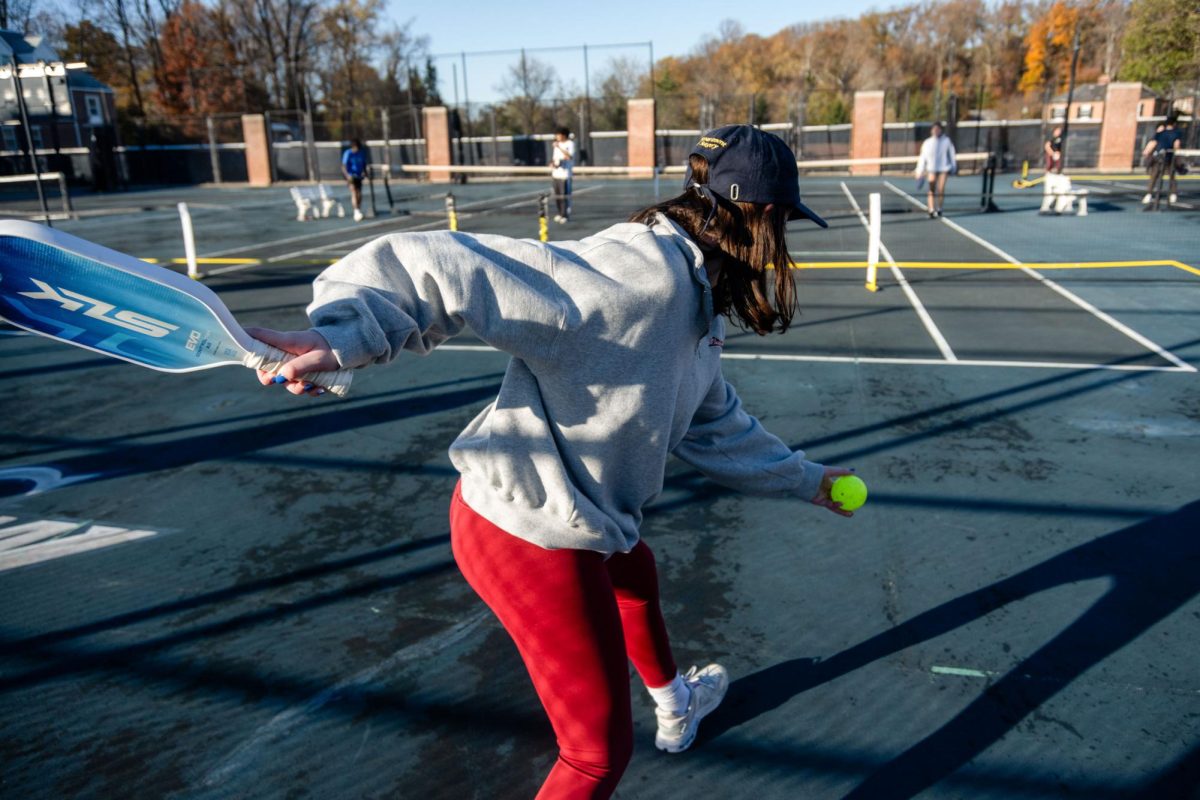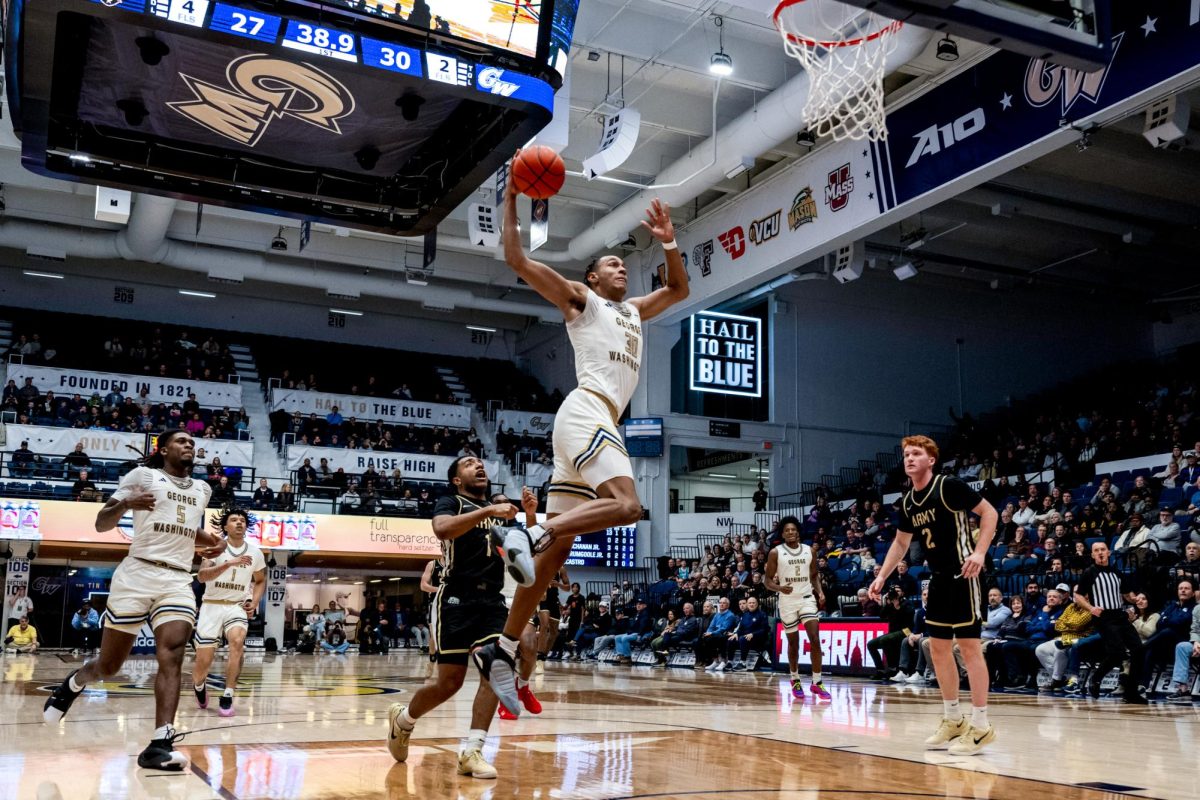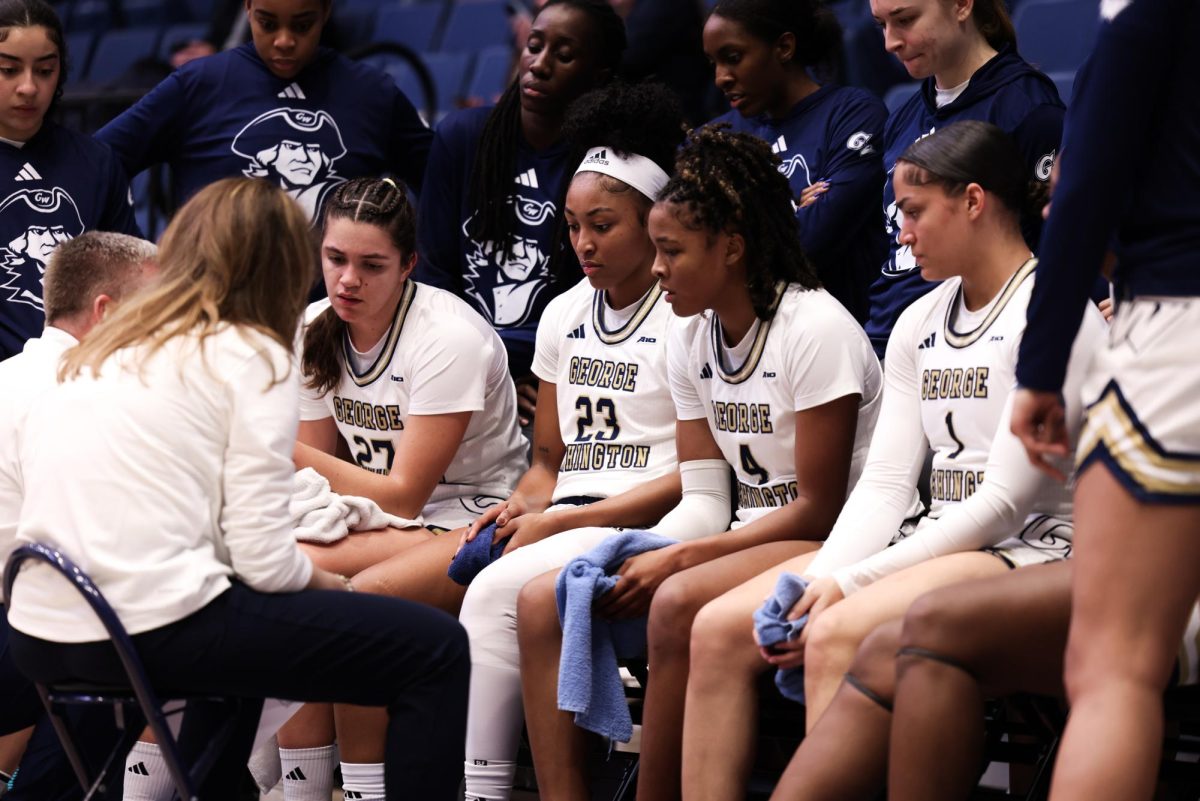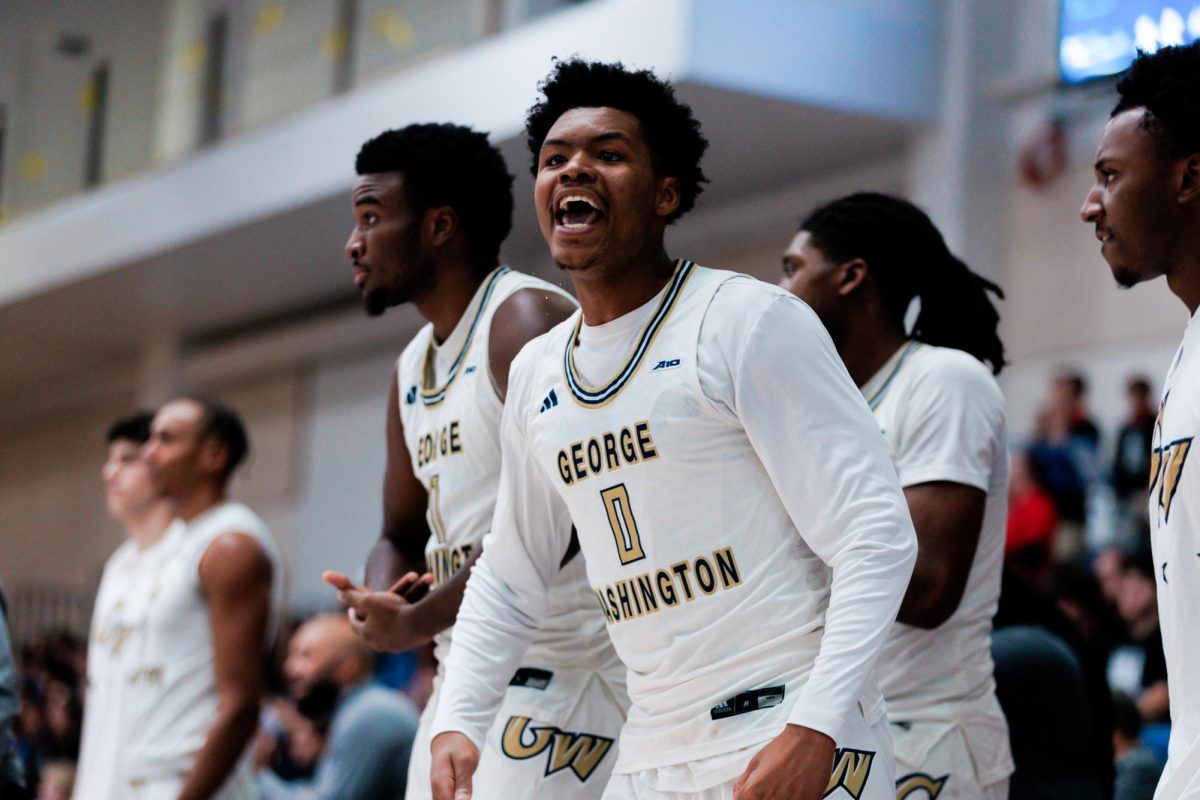After an inconsistent fall, sailing opens the spring slate looking to solidify a young roster and mitigate the increased pressure of spring play.
Seven freshmen and three seniors bolster sailing’s roster. Head coach Billy Martin said despite facing “growing pains” throughout the fall, a young team allows for him to establish a solid team dynamic and instill good habits on the water.
“You can really pay a large amount of attention to those details early on and have that learning curve be as cohesive and as gradual as possible for everyone,” Martin said. “And I think it’s easier to teach one segment instead of everyone individually.”
The Colonials kicked off their fall run with a first-place Riley Cup finish but were unable to sustain their momentum. GW wrapped up fall competition with fifth and sixth-place finishes at the Mid Atlantic Intercollegiate Sailing Association Championships.
Despite this stumble, the program improved over the past few seasons. Last year, the Colonials landed their highest finish in program history at the 2019 ICSA Women’s National Championship.
The Colonials went from 13 rostered seniors last season to only three this year, including Sarah Noyes, Aitana Mendiguren and Michael Houllahan. Martin said the team’s youth requires him to alter his coaching style because the younger team isn’t as mature.
This season, 20 of GW’s 28 sailors are underclassmen. Martin added that while the lack of experience poses challenges, it also provides an even playing field for sailors to learn as they go.
Sophomore Matt Logue, one of GW’s highest performing co-ed competitors, said the varying results from the Colonials’ fall run, which saw six top-three finishes out of 17 regattas, were partly caused by focusing on the team’s rank.
“We had a really inconsistent fall,” Logue said. “We had some regattas where we did really well, some where we didn’t do as well as we wanted to. But in the end there was some pressure because we weren’t ranked. We aren’t ranked right now.”
Logue added that the team’s youth could even be an advantage because there are fewer expectations from competitors, which makes the team harder to scout before competitions.
“Since we’re a young team we’re going into regattas with people not really judging us on how we’re going to be,” Logue said. “No one really knows who our third skipper is going to be, it’s all up in the air. But I think people will be surprised with how we do.”
The squad opened spring competition over the weekend by hosting Hobart and Smith, Navy, Penn, SUNY Maritime and U.S. Merchant Marine Academy for the GW Team Race.
The Colonials placed third at the competition, taking a 9-6 record throughout 15 races. Five underclassmen and four upperclassmen competed over the weekend.
Because of the team’s youth, the Colonials will have to weather the transition from fall to spring play with a roster less accustomed to making that adjustment. Noyes said spring competition is more team-based than during the fall and culminates not in a conference championship, but the ICSA National Championship.
She added that the team has been preparing for the spring team races in practices, breaking down races and weather conditions to be as prepared as possible for the course.
“I know for team racing it’s a lot of breaking down the course of the race into smaller pieces, so on certain days we’ll focus on smaller pieces and then throughout the week we’ll build bigger,” Noyes said.
Martin said during the spring, he begins to incorporate higher level racing strategies into practice after the sailors have experienced a full fall slate under their belts.
“In the fall I really focus a lot on the boats speed and the boat handling,” Martin said. “And then in the spring is when I’ll start bringing in other variables like weather considerations and typical wind patterns and the more strategic and tactical game.”
Martin added that during the spring, sailors also face the added pressure of qualifying for nationals, a factor that could provide distractions throughout the course of the three-month-long season.
“When you’re competing just to do the best you can, that’s one thing, and we’re competing for the chance to go to nationals and representing your team and not letting your team down,” Martin said. “It just raises the level and it’s just one other variable that distracts the sailor. They have to think about qualifying for nationals.”


